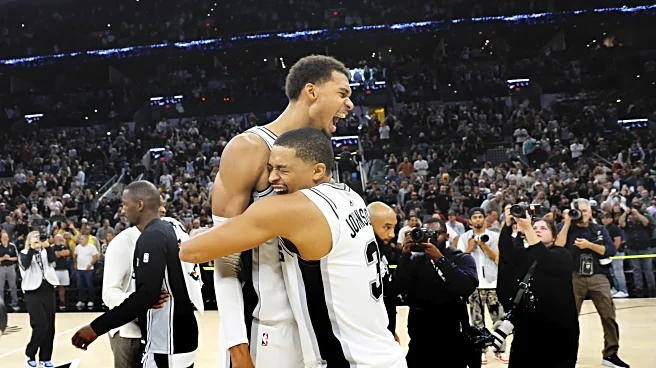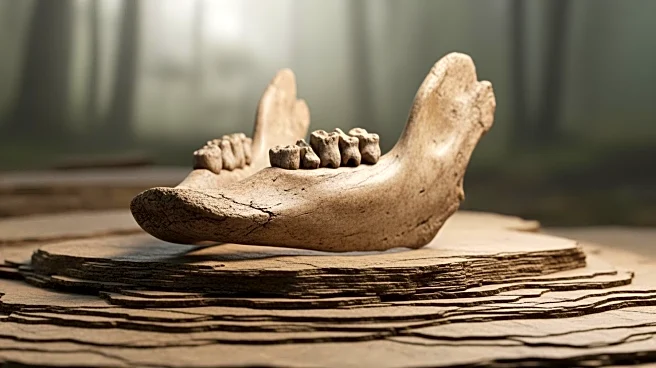Earl Weaver died the year that I turned 25.
And yet, every year around this time, I find myself thinking about him. There’s something about the fragmentary mingling of the baseball and basketball seasons, with one ending while the other starts up, that feels poignant to me.
In Texas, we really only have two truly distinct periods of weather: the three different variations of summer, and football season.
For most of my life, though, this has been my favorite time of year. Baseball was the first sport
I loved, and it seems fitting that basketball followed shortly after. There’s something in the air at this time of year, during the brief yet invigorating respite that natives frequently refer to as our three weeks of Fall.
It feels earned, like a long, soft rain after a drought.
And so too does San Antonio’s five-game win streak to open the season.
It’s funny, I never really know what’s going to trigger my musing about Weaver. It’s never the same thing twice. Will it be Gregg Popovich, earning one of his first ejections of the season? Will it be a rookie Victor Wembanyama dueling with Kevin Durant to the death? Will it be a blowout or an impossibly tight game?
The truth is, it’s been all of those, and more. But tonight, it was Mitch Johnson.
It can be hard to know (especially as a fan) which buttons to push with a team, and when. Even coaches with glittering resumes are often at a loss when it comes to that. I think that’s why they so frequently appear apoplectic at the appearance of shoddy play from the teams that they ceaselessly drill and teach.
How can they be doing this?! We just went over this! [Insert look of bewilderment]
And I think this is why I’m so fascinated by basketball coaches and managers. There are 82 games in an NBA season. The MLB nearly doubles that number. Coaches in both arenas are subjected to more games of professional sports than just about any other coaches on planet earth, and as a result, they are subject to more degrees of variance.
There are no undefeated seasons in the history of either sport, no matter how consistently great the team is, and there never will be. Both seasons offer far too many opportunities for failure, on both a competitive and human level.
So, coaches push buttons, and pull levers, and alternate between demeanors of ferocity and reassurance. Outside the realm of training and schematics, their weapons and tools are those of human emotion. What distinguishes them is how they use them.
With Phil Jackson, there was an air of benevolent cult leader. With Pat Riley, that of a slick and shrewd Mafioso. With Popovich, military precision and order.
All three were strategically gifted, cited for the variety and adaptability of their successes.
Timeouts called at precisely the right moment, substitutions made for just the right addition to the lineup, surprising inbound and set plays calculatedly held back until just the right moment. These were all the things that (deservedly) drew media attention.
What always fascinated me most, though, were the things that they did not do, and the times that they declined to do them.
Earl Weaver was a coach who was in many ways defined by what he would not do.
Having toiled in the minors for over a decade, Weaver was convinced that he knew what did and didn’t work. He’d both played and managed in a legion of run-down/lower quality baseball stadiums, and he’d earned his knowledge the hard way.
He’d never made it to the majors as a player, something that many within baseball were (and remain) convinced all but guarantees managerial failure. But Weaver had won a lot for a minor league manager, and in the process, he’d picked up a few tricks.
Winning at the minor league level is hard. You’re constantly cycling through players (even more so than college coaches), constantly traveling at the lowest fare, and constantly dealing with a roster fluctuating in both quality and consistency. Minor leaguers are either young and full of untrained promise or old and full of unattainable dreams. The third category is reserved for those who never had either.
Weaver was forced to be familiar with every player on the roster, and their weaknesses and strengths, which was no small achievement at a time when computers still had vacuum tubes and transistors.
Painstakingly, he documented each player’s match-ups and successes decades before the standardization of sporting analytics. Strengths were fewer and farther between at this level; weaknesses abounded. Weaver, understandably, only wanted to face strengths with strengths. As a result, he would only set lineups with players who excelled against certain pitchers, or in certain situations, even occasionally benching better players with worse outcomes.
In 1979, at the major league level, he would use 140 different lineups in just 162 games, a record that wasn’t broken until 2016 by A.J. Hinch (and the Astros analytics department).
By 2015, the average MLB team used 128 different starting lineups in a season.
It was a meticulousness that seemed an insanity when he took over the Orioles as an interim manager in 1968. Especially in contrast with his public demeanor.
To many at the time, Weaver appeared to be endlessly quirky and temperamental. He hated umpires, often bearing grudges against them from specific instances of officiating back in their years in the minor leagues. He was famously profane, to such an extent that many reporters gave up waiting for a clean moment and simply removed the swear words from his quotes. He even feuded with his own pitchers, including future Hall of Famer Jim Palmer.
Amidst the temper and the tirades, though, there was a keen and considerate mind at work.
Managing in the minors, his pitchers had often fallen short of the Major Leagues due to issues with accuracy. He solved this by demanding that avoid throwing at the edges of the strike zone, relying instead on changes in speed and spin, the batter’s skills, and the infield. This had the effect of greatly reducing walks and increasing strikes. Years later, Palmer conceded that it had made him a better pitcher.
A failed baseball player, Weaver also had a soft spot for the limited and niche athlete, frequently adding players to his team that displayed only one standout skill, or excelled in specific circumstances — players that no one else wanted or saw the value in.
As a result, his teams were unusually deep, receiving critical and timely contributions all across the roster, and his players were loyal. Weaver matched that loyalty even as he drove them hard, often keeping them on the roster against objections and through extended slumps.
As a result, his teams won 100+ games (the equivalent of a 60-win NBA season) 5 times (one shy of the record), and made it to the World Series 4 times (5 if you count the year after he retired).
No one could understand how this tiny, irascible, chain-smoking man had done it. And while he did anticipate several strategic points of emphasis by a generation or so, Weaver remained surprisingly modest about his contributions.
“A manager’s job is simple. For one hundred sixty-two games you try not to screw up all that smart stuff your organization did last December.”
It was this quote in particular that stuck in my mind as I watched the Spurs struggle their way to victory against the Miami Heat.
It was a back-and-forth affair, full of inconsistency from one of the youngest rosters in the NBA, up against a team of talented veterans and a coaching genius in Eric Spoelstra.
There were turnovers, sure, but not as many as in the past several games. There were moments of being beaten down by physicality and toughness, but the Spurs refused to let themselves be turned into jump shooters.
The ebb and flow were nerve-racking, as each team surged into a lead, and then found themselves pulled back down into the mud. I wondered how someone could stand watching it in court-side proximity.
And that was when I started to watch Mitch Johnson.
Johnson didn’t look apologetic or nonplussed. He looked calm, even compared to last season. He was confident, and he projected that to the team in spite of every upturn or downturn. Sure, he made the occasional sharp call (including a vintage hammer play from Keldon Johnson), but largely he kept things at equilibrium.
He let the players that the front office has painstakingly assembled work through their up-and-downs organically. He let Wemby work on overcoming his own personal hurdle in Bam Adebayo and Miami’s bigs, giving him the most minutes of his career rather than coddling or protecting him with restrictions. He trusted that shooting would return to the mean, in the work that his players had done.
“What else does a manager do but push buttons? He doesn’t hit, he doesn’t run, he doesn’t throw, and he doesn’t catch the ball. A manager has twenty-five players, or twenty-five buttons, and he selects which one he’ll use, or push, that day. The manager who presses the right buttons most often is the one who wins the most games.”
Long after retirement, Earl Weaver remained convinced that bad ballplayers made the best coaches. There was bias in that sentiment, undoubtedly, but it reminds me of a story that basketball writer Charley Rosen once told about Jerry West.
Before going into the front-office work that would further cement his legacy, West tried his hand at coaching in NBA. According to his players, West would start every fourth quarter with the same passionate statement: “Remember, this is the biggest game of your life.”
For West, the perfectionist legend, this was the truth. But every game can’t be the biggest game of the average NBA player’s life. There are 82 games in a season. You have to know how to pace your players, and how to accept defeat.
You have to know when your players are really having an off night or just need something to ignite them. You have to know who to place where, for reasons that aren’t even statistical.
In spite of his statistical and situational obsessions, this was something Earl Weaver excelled at, sometimes placing a player in the lineup due to their enthusiasm, or good humor, or resistance to pressure; trusting something elemental within the individual: the will, the training, the fighting spirit.
It was something Gregg Popovich, who also never made it as a player, also excelled at.
And it appears to be a trait that Mitch Johnson, who coached in the NBA minors after a failed playing career, also has.
For years, Pop insisted that the larger part of his success came at the cost of not screwing up an already good thing. If nothing else, Johnson seems to have fully grasped that concept. It’s not a small thing. But then, the small things rarely are.
The Spurs showed grit, endurance, and a refusal to quit, and teams are always a reflection of their coaching.
The Spurs are 5-0, and so is Mitch Johnson.
Takeaways
- Though his shooting stats certainly left one wanting (1-6 from three), Julian Champagnie played excellent defense throughout the game. Keeping Miami’s guards in check and rotating sharply, his steadiness allowed Stephon Castle to do some critical free-lancing, to the tune of four steals. Yes, Castle is a defensive standout in his own right, but no team ever does anything alone, which is why Champanie ended the night with the highest +/- on the team for the evening. Games like this are critical because they allow Champagnie to establish his non-shooting value, and function as proof of concept that he can be slotted in just about anywhere and be a net positive. And on a night where both Devin Vassell and Keldon Johnson were suffering some defensive lapses, that’s always good to know.
- As for Vassell, I’m still monitoring him closely for cracks, but I have to say he looks much restored to the version of himself that landed that contract in 2023. He also seems to be committed to knocking down the long-ball and being more efficient with his shot selection. If he can keep this up for the length of the season, teams are going to have an awful hard time collapsing in on Wemby in the post, and we’ve already seen the damage he can do one-on-one.
- And boy, I cannot say enough about what Keldon Johnson is doing so far this season. After despairing that he would ever be able to settle in as a sixth man without a three-pointer, Johnson is channeling Seth Curry by shooting 54% from three, for a preposterous 54/62/82 shooting split. And while I doubt he’ll stay quite that hot, even a slight decline would still make him one of the nastier bench scorers in the league. He’s even performing well defensively, matched up against other benches. It’s a sight for sore eyes, as I’ve long had a soft spot for the guy and his trademark brand of enthusiasm. Score one for the good guys.
Playing You Out – The Theme Song of the Evening:
Eye of the Tiger by Survivor















